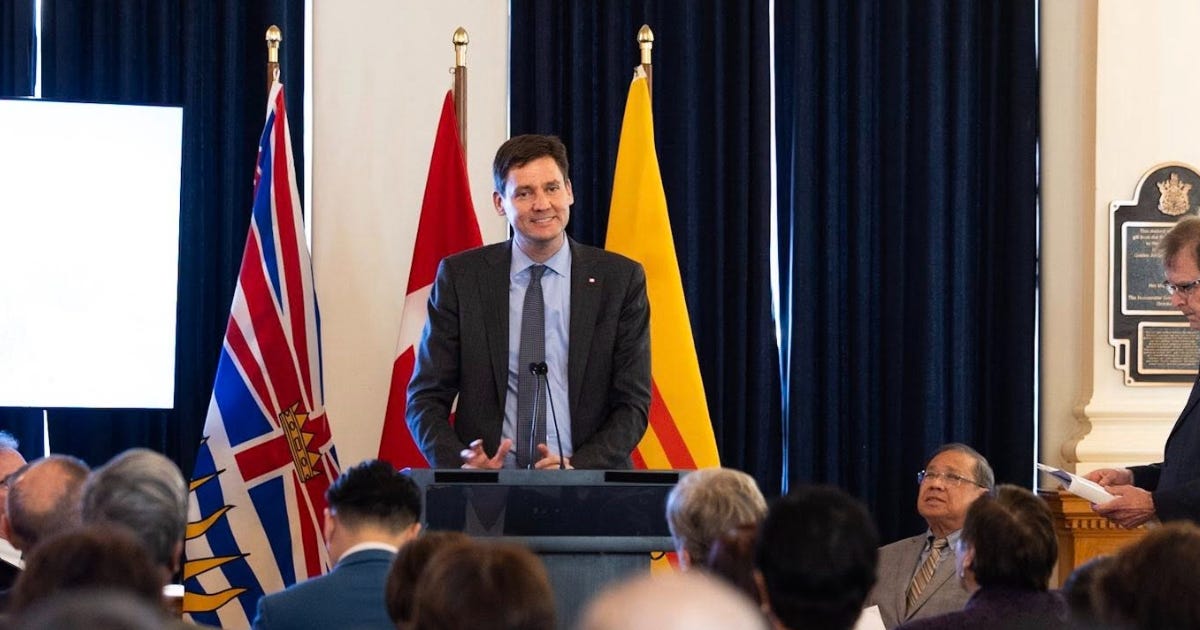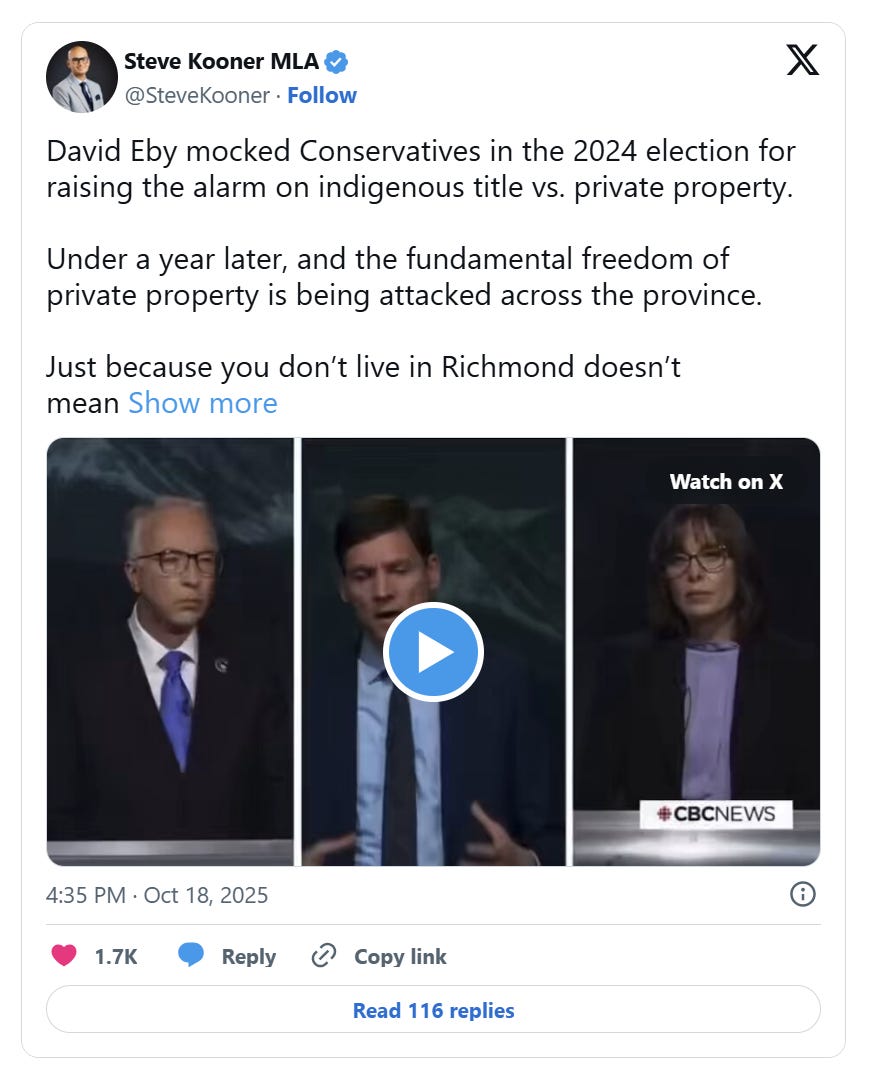After mocking private property concerns, Eby now worried about Cowichan decision
B.C. Premier David Eby is now “sharing the concerns” over the Cowichan Aboriginal title court decision that could impact private property rights.
Author: Alex Zoltan
B.C. Premier David Eby is now “sharing the concerns” over the Cowichan Aboriginal title court decision that could impact private property rights, a decision he largely influenced as the former attorney general by abandoning a key legal defense.
The admission came Monday morning during a Victoria, B.C., media conference to announce a new “First Nations-led clean industrial development,” where the premier was joined by Adrian Dix, minister of energy and climate solutions, and Jagrup Brar, minister of mining and critical minerals.
The media conference began with a festive tone. “We’ve had a heck of a weekend, go Jays go,” Eby began before being confronted by a reporter, who also identified themselves as a “Jays fan,” on the issue of the Cowichan Tribes decision.
The reporter pressed the B.C. premier for his thoughts on a town hall planned in Richmond for Oct. 28, where concerned residents are expected to express discomfort and displeasure with the potential impact of the Cowichan decision on their private property rights.
In the Cowichan Tribes v. Canada decision, the B.C. Supreme Court issued what has been called a “bombshell decision,” finding that fee simple title — meaning private property ownership — in certain land in Richmond is “deficient and invalid” because of a finding of Aboriginal title.
Over the weekend, Richmond Mayor Malcolm Brodie sent a letter to residents affected by the B.C. Supreme Court’s recent Cowichan Nation land title decision, warning that their property ownership could be compromised.
“I share the concern of Mayor Brodie,” Eby admitted before calling the Cowichan decision “a big deal.”
Notably, prior to his election as premier of B.C., Eby was the attorney general in charge of leading the province’s case against the Cowichan Tribe in the B.C. Supreme Court and to preserve the rights of private property owners.
At that time, Eby, who served as B.C. attorney general from 2017 to 2022 and was the approving authority behind the province’s civil litigation directives, explicitly discouraged arguing unilateral extinguishment of Aboriginal title.
Extinguishment refers to the legal position that Aboriginal title was eliminated when the Crown granted private ownership and was argued by only one of six defendants in the Cowichan Tribes case — the City of Richmond.
Instead, the B.C. government directives created when Eby was attorney general stated that government lawyers must take an approach “that upholds the honour of the Crown” and avoid advancing arguments based on the “unilateral extinguishment of Aboriginal rights,” citing the province’s obligations under the United Nations Declaration on the Rights of Indigenous Peoples.
Eby had also notably mocked his political opponents during a B.C. Elections debate in 2024 when the Cowichan subject arose, saying that his government’s work on the Cowichan case had “improved prosperity for everyone.”
Meanwhile, BC Conservative Party Leader John Rustad took to X on Sunday to admonish Eby for his lack of firmness on the issue.
“Premier Eby has a choice to make,” Rustad said in his X post, urging the premier to “stand for private property rights” or to “continue to sew division, distrust, and divestment in BC.”






This total loser is destroying BC intentionally.